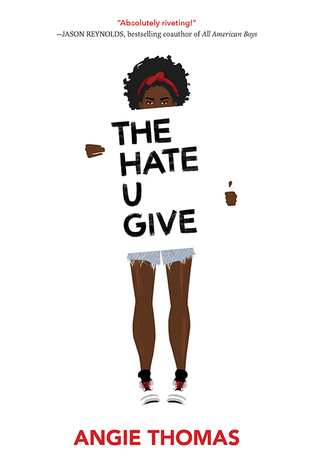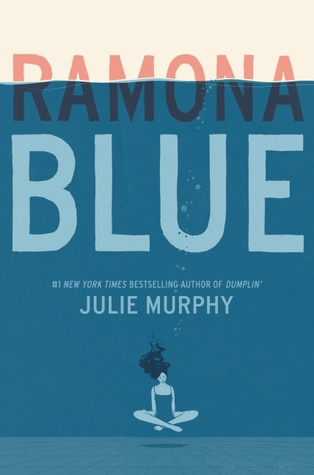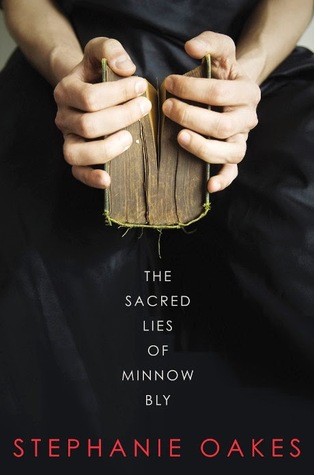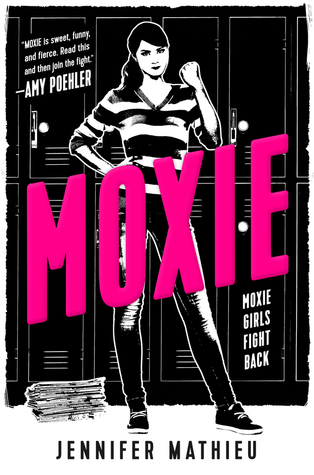The following books are available for request. For the complete list (and original source), please visit LitReactor's original article.
PATIENT ZERO by Jonathan Maberry
Monday, 1300 Hours: Joe Ledger kills terrorist Javad Mustapha, aka Patient Zero, with two point-blank shots from his Glock .45.
Wednesday, 0800 Hours: Patient Zero rises from the dead…
When
you have to kill the same terrorist twice in one week, there’s either
something wrong with your world or something wrong with your skills...
and there’s nothing wrong with Joe Ledger’s skills. Ledger, a Baltimore
detective assigned to a counterterrorism task force, is recruited by the
government to lead a new ultrasecret rapid-response group called the
Department of Military Sciences (DMS) to help stop a group of terrorists
from releasing a dreadful bio-weapon that can turn ordinary people into
zombies.
FOREST OF HANDS AND TEETH by Carrie Ryan
In Mary's world there are simple truths.
The Sisterhood always knows best.
The Guardians will protect and serve.
The Unconsecrated will never relent.
And you must always mind the fence that surrounds the village; the
fence that protects the village from the Forest of Hands and Teeth.
But, slowly, Mary’s truths are failing her. She’s learning things she
never wanted to know about the Sisterhood and its secrets, and the
Guardians and their power. And, when the fence is breached and her world
is thrown into chaos, about the Unconsecrated and their relentlessness.
Now, she must choose between her village and her future, between the
one she loves and the one who loves her. And she must face the truth
about the Forest of Hands and Teeth. Could there be life outside a
world surrounded in so much death?
ZONE ONE by Colson Whitehead
A pandemic has devastated the planet, sorting humanity into two types:
the uninfected and the infected, the living and the living dead. After
the worst of the plague is over, armed forces stationed in Chinatown’s
Fort Wonton have successfully reclaimed the island south of Canal
Street—aka Zone One. Mark Spitz is a member of one of the three-person
civilian sweeper units tasked with clearing lower Manhattan of the
remaining feral zombies.
Zone One unfolds over three surreal days
in which Spitz is occupied with the mundane mission of straggler
removal, the rigors of Post-Apocalyptic Stress Disorder (PASD), and the
impossible task of coming to terms with a fallen world. And then things
start to go terribly wrong…
BREATHERS: A ZOMBIE'S LAMENT by S.G. Browne(Staff Pick!)
Meet Andy Warner, a recently deceased everyman and newly minted zombie.
Resented by his parents, abandoned by his friends, and reviled by a
society that no longer considers him human, Andy is having a bit of
trouble adjusting to his new existence. But all that changes when he
goes to an Undead Anonymous meeting and finds kindred souls in Rita, an
impossibly sexy recent suicide with a taste for the formaldehyde in
cosmetic products, and Jerry, a twenty-one-year-old car-crash victim
with an exposed brain and a penchant for Renaissance pornography. When
the group meets a rogue zombie who teaches them the joys of human flesh,
things start to get messy, and Andy embarks on a journey of
self-discovery that will take him from his casket to the SPCA to a
media-driven class-action lawsuit on behalf of the rights of zombies
everywhere.
FEED by Mira Grant
The year was 2014. We had cured cancer. We had beat the common cold. But
in doing so we created something new, something terrible that no one
could stop. The infection spread, virus blocks taking over bodies and
minds with one, unstoppable command: FEED.
Now, twenty years
after the Rising, Georgia and Shaun Mason are on the trail of the
biggest story of their lives-the dark conspiracy behind the infected.
The truth will out, even if it kills them.
RAISING STONY MAYHALL by Daryl Gregory (Available from Allentown)
In 1968, after the first zombie outbreak, Wanda Mayhall and her three
young daughters discover the body of a teenage mother during a
snowstorm. Wrapped in the woman’s arms is a baby, stone-cold, not
breathing, and without a pulse. But then his eyes open and look up at
Wanda—and he begins to move.
The family hides the child—whom they
name Stony—rather than turn him over to authorities that would destroy
him. Against all scientific reason, the undead boy begins to grow. For
years his adoptive mother and sisters manage to keep his existence a
secret—until one terrifying night when Stony is forced to run and he
learns that he is not the only living dead boy left in the world.
WORLD WAR Z by Max Brooks
The Zombie War came unthinkably close to eradicating humanity. Max
Brooks, driven by the urgency of preserving the acid-etched first-hand
experiences of the survivors from those apocalyptic years, traveled
across the United States of America and throughout the world, from
decimated cities that once teemed with upwards of thirty million souls
to the most remote and inhospitable areas of the planet. He recorded the
testimony of men, women, and sometimes children who came face-to-face
with the living, or at least the undead, hell of that dreadful time.
World War Z
is the result. Never before have we had access to a document that so
powerfully conveys the depth of fear and horror, and also the
ineradicable spirit of resistance, that gripped human society through
the plague years.
Ranging from the now infamous village of New
Dachang in the United Federation of China, where the epidemiological
trail began with the twelve-year-old Patient Zero, to the unnamed
northern forests where untold numbers sought a terrible and temporary
refuge in the cold, to the United States of Southern Africa, where the
Redeker Plan provided hope for humanity at an unspeakable price, to the
west-of-the-Rockies redoubt where the North American tide finally
started to turn, this invaluable chronicle reflects the full scope and
duration of the Zombie War.
Other Mentions from Our Staff:
THIS IS NOT A TEST by Courtney Summers
(Staff Pick!)
It’s the end of the world. Six students have taken cover in Cortege High
but shelter is little comfort when the dead outside won’t stop pounding
on the doors. One bite is all it takes to kill a person and bring them
back as a monstrous version of their former self. To Sloane Price, that
doesn’t sound so bad. Six months ago,
her world collapsed and
since then, she’s failed to find a reason to keep going. Now seems like
the perfect time to give up. As Sloane eagerly waits for the barricades
to fall, she’s forced to witness the apocalypse through the eyes of five
people who actually
want to live. But as the days crawl by, the
motivations for survival change in startling ways and soon the group’s
fate is determined less and less by what’s happening outside and more
and more by the unpredictable and violent bids for life—
and death—inside. When everything is gone, what do
you hold on to?
ASHES by Isla J. Bick
It could happen tomorrow . . . An electromagnetic
pulse flashes across the sky, destroying every electronic device, wiping
out every computerized system, and killing billions.
Alex hiked into
the woods to say good-bye to her dead parents and her personal demons.
Now desperate to find out what happened after the pulse crushes her to
the ground, Alex meets up with Tom—a young soldier—and Ellie, a girl
whose grandfather was killed by the EMP.
For this improvised family and the others who are spared, it’s now a question of who can be trusted and who is no longer human.
PRIDE AND PREJUDICE AND ZOMBIES by Jane Austen and Seth Grahame-Smith
(Staff Pick!)
“It is a truth universally acknowledged that a zombie in possession of brains must be in want of more brains.”
So begins
Pride and Prejudice and Zombies,
an expanded edition of the beloved Jane Austen novel featuring all-new
scenes of bone-crunching zombie mayhem. As our story opens, a mysterious
plague has fallen upon the quiet English village of Meryton—and the
dead are returning to life! Feisty heroine Elizabeth Bennet is
determined to wipe out the zombie menace, but she’s soon distracted by
the arrival of the haughty and arrogant Mr. Darcy. What ensues is a
delightful comedy of manners with plenty of civilized sparring between
the two young lovers—and even more violent sparring on the blood-soaked
battlefield. Can Elizabeth vanquish the spawn of Satan? And overcome the
social prejudices of the class-conscious landed gentry? Complete with
romance, heartbreak, swordfights, cannibalism, and thousands of rotting
corpses,
Pride and Prejudice and Zombies transforms a masterpiece of world literature into something you’d actually want to rea
THE ENEMY by Charlie Higson
(Staff Pick!)
In this dystopian thriller set in London, everyone over 16 is dead or
diseased, and youngsters are in constant danger of being eaten by
boil-infested grown-ups who roam the streets like zombies looking for
children to kill. Led by teens Arran and Maxie and armed with makeshift
weapons, a group of kids sets out from the uncertain safety of an
abandoned supermarket to travel to Buckingham Palace, where a young
messenger promises that food, medicine, and a haven are available. Along
the way, Arran is killed. One youngster selfishly decides to stay
behind with a secret stash of food and is there to tell Small Sam, who
had been abducted and feared dead, where the others (including his
sister) have headed. Sam's quest to find Ella parallels the story of the
large group with similar run-ins with marauding adults and mistrustful
children who scavenge about the city. The bleak setting is filled with
decay, danger, and puss-oozing parents who have turned into butchers. On
arriving at Buckingham Palace, Maxie decides that David, the teen
leader there, is too tyrannical, and she must regain control of her
brood and convince them to leave for a new location.

BREAK MY HEART 1000 TIMES by Daniel Waters
Living in the aftermath of the Event means that seeing the dead is now a
part of life, but Veronica wishes that the ghosts would just move on.
Instead, the ghosts aren't disappearing-they're gaining power.
When
Veronica and her friend, Kirk, decide to investigate why, they stumble
upon a sinister plot. One of Veronica's high school teachers is crippled
by the fact that his dead daughter has never returned as a ghost.
Veronica seems like the perfect body to host her. And even if he's
wrong, what's the harm in creating one more ghost?
ROT AND RUIN by Jonathan Maberry In the zombie-infested, post-apocalyptic America where Benny Imura
lives, every teenager must find a job by the time they turn fifteen or
get their rations cut in half. Benny doesn't want to apprentice as a
zombie hunter with his boring older brother Tom, but he has no choice.
He expects a tedious job whacking zoms for cash, but what he gets is a
vocation that will teach him what it means to be human.
All titles available for request for $0.50 to any of the EAPL branches, or to Allentown and Bethlehem.





































